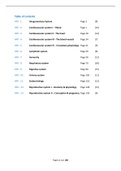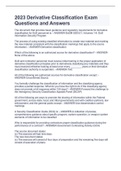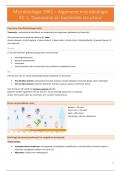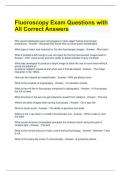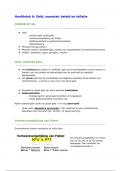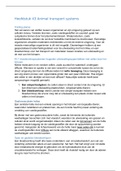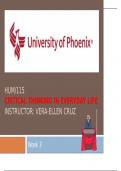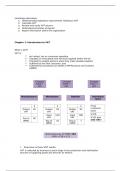Chapter one
Qualitative research: gives an in dept analysis of the social world and people their
experiences.
Ontology: nature of social world (what is real)
- Objectivism / realism
o Empirical (senses)
- Constructionism / idealism
o (mind dependent) Everything what we see is there because of our interpretation.
Epistemology: Nature of knowledge (how can we learn)
Paradigm: concepts of thoughts researchers have (ontology + epistemology)
Parameters: measurable factors that you are taking into account with your research.
Inductief Deductief Retroductie Abductie
Facts and data first Theory first Explaining Data from
mechanics that participans and their
produce patterns in activities
data
Paradigms (schools)
Objectivism / realism Constructionism / Idealism
Positivism / postpositivism Interpretivism Constructionism–Critical theory–action research- poem
, Linguistic turn: period in time when research became more about language
Ethnography research: understand the social world true culture, shared behaviours, beliefs and
values.
Phenomenology: describing the meaning people attach to a particular phenomenon concept or idea.
Ethnomethodology: the study of how, in practice people construct social order and make sense of
the social world.
Conversation analysis (analysing the way in which talk is structured), discourse analysis (focusing on
the way knowledge is produced within different discourses)
Symbolic interaction: symbols and interpretation people attach to their social actions and
environments.
Grounded theory: aims to generate theories that explain social processes by through analysis of data
from participants who experienced them. (inductive research strategy).
Personal construct theory: the study of psychological constructs that people use to define and attach
meaning to their thinking and behaviour.
Ethogenics: concerned with what with the roles and rules through which people choose to acto or
not.
Protocol analysis: study of thinking process in cognitive tasks.
Post-modernism: (post-structuralism / deconstructionism).
Critical theory: is concerned with empowering people to overcome social circumstances that
constrain them. (umbrella-term for: neo-marxism, feminism, social models of disability, critical race
theory and queer theory)
Participatory (action) research: aims to break down the barriers between the researcher and the
researched and to enact positive change for those involved in the research process.
Narrative and biographical methods: focus on individual stories.
Reflectivity, paradigm, constructiosm, critical theory, ethnography, phenomenology, discourse
analyses, narrative research.
*choose the approach that best fits the question (pragmatism) [or hybrid approaches], there is an
argument for all, but you should pick yourself and ask others to help.


